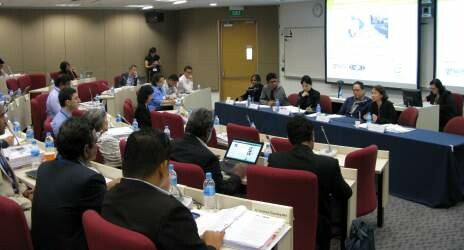
The workshop highlighted the need for better mainstreaming and integration of CCA into disaster risk management, and reinforced the importance of legal, policy and governance frameworks to adapt to increasing global climate change and mitigate the impact of natural disasters.
Hosted by the National University of Singapore’s Faculty of Law, the two-day workshop entitled ‘Adaptation to Climate Change: ASEAN and Comparative Experiences’ brought together professors and researchers from academic institutions, and representatives from agencies such as the United Nations Development Programme (UNDP) and the Association of Southeast Asian Nations (ASEAN).
Presentations and discussions were focussed on the experiences of CCA and environmental management among various countries within the region, and the role that laws, policies and institutions can play in CCA and disaster risk reduction (DRR). The workshop provided a good opportunity for the International Federation of Red Cross and Red Crescent Societies (IFRC) Disaster Law Programme (DLP) to promote the launch of the IFRC-UNDP global comparative study on how law can support effective DRR, and share the findings and recommendations of the study with the academic community.
A key message raised by participants during the workshop was that while adoption of robust laws is important, mechanisms for implementation and good governance are also crucial to ensure effective CCA and DRR. As one participant remarked, ‘You can have the best laws, but they will not work without good implementation and governance.’
Participants found the study to be an extremely useful resource to inform their own research, due to the similarity in legislative issues, challenges and gaps underscored in the findings. They thus emphasized the need for more collaboration and cross-fertilisation of ideas between researchers and practitioners, including a follow-up workshop on climate change, disaster management and risk reduction.